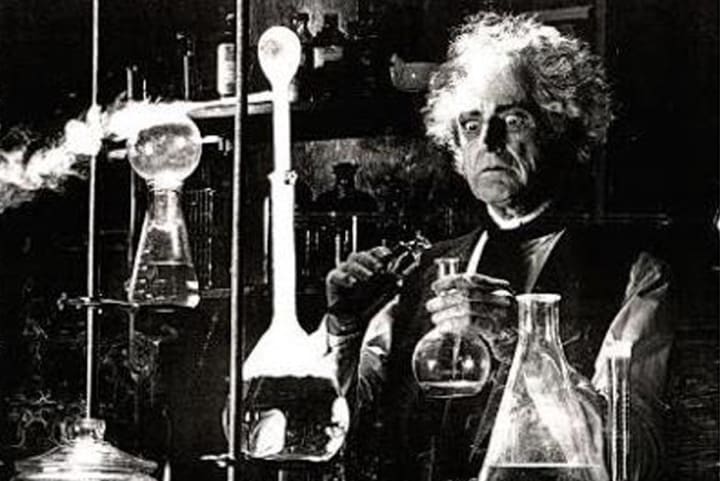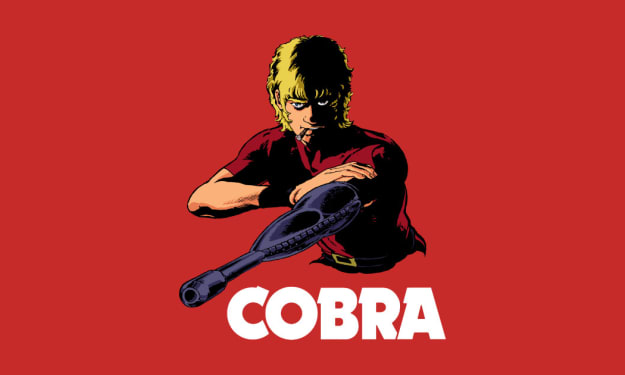Science Fiction Terms You Should Know and How They Originated
A word-obsessed person looks into the history of some of the most popular science fiction terms.

If there was one thing that Orwell's 1984 got right, it's the insane effect that language has on reality. The moment that a word seems to be invented, it has an impact on humanity's overall state of being.
Words make worlds. It's so true. Many of the words we use regularly today were the invention of a forward-thinking sci-fi author who imagines a world of their own.
You might be shocked at some of the words that started out as science fiction terms. Check out are some of the most commonly used terms from sci-fi books, and the history that made them come alive today.
Robotics

Most people already would guessed that the words "robotics" and "robots" were originally science fiction terms. Though the term "robot" was occasionally used prior, it was Isaac Asimov who coined the terms "robotics" in his 1941 book, Liar!
Sci-fi fans will tell you that the term itself wasn't the only thing Asimov contributed to the world of robotics. His "3 Laws of Robotics" have basically become a guideline on what we expect as far as the ethics of robots and AI goes.
Isaac Asimov's foundation for robotics was a solid one; it's survived over 70 years of technological advances.
Robot
Though Isaac Asimov may have taught the world the term "robotics," the word "robot" is historically accredited to writer Karl Čapeck in his play, R.U.R.: Rossum’s Universal Robots. The term came from the Czech word for "forced labor."
He was originally going to go with "roboti," but shortened it to "robot" after his brother Josef advised him. "Robot" first joined the league of science fiction terms in 1920.
What's surprising about this term is how long it took people to shorten it. It took 49 years for "robot" to get shortened to "bot" by Richard C. Meredith in his 1969 story, We All Died at Breakaway Station.
Spaceship
To a point, this is a "well, duh" addition to any list of science fiction terms. Most people might be surprised that it's a term as young as it is, though.
While it's safe to say that people have dreamed of sailing ships to the moon for centuries, the actual term "spaceship" only first appeared in an 1894 book by J.J. Astor called A Journey in Other Worlds.
Earlier on, a hyphenated term of "space-ship" was used in the Pall Mall Gazette in reference to a story by Jules Verne. It was one of many nautical terms that would end up getting translated into space.
Moon Base

It's hard to imagine the world without a term for a moon base, especially after we visited the moon. However, there was a first time for everything—and most people might be mildly surprised to find out that the term "moon base" was one of many science fiction terms to be created by someone daydreaming of a distant future.
Bryce Walton first used the term in 1947 in his classic story, Assignment in the Dawn. Shortly after, another famous science fiction writer ended up using it and making it more popular. That writer? None other than L. Ron Hubbard, founder of Scientology.
Parallel Universe
Often the topic of theoretical physics, this phrase once was one of many science-fiction terms entirely relegated to the world of fiction. Prior to physicists talking about how it would be possible for us to travel through a multiverse, another science fiction writer mentioned it.
Believe it or not, it was H.G. Wells to first coin this term—and he did it in his 1923 novel, Men Like Gods. He described the Utopia in this book as a "parallel universe," and the rest is history.
Genetic Engineering
Perhaps one of the most surprising science fiction terms on this list is "genetic engineering." This term has only recently breached from the realm of science fiction to science fact, but it's been around for far longer than you'd expect.
Science fiction authors have Jack Williamson's novel Dragon Island to thank for this term. (For the record, this book was published in 1941—around 50 years prior to the invention of genetically modified organisms.)
Mad Scientist

Science fiction terms don't get any more cliché than this, right? (Okay, well, maybe, if you count things like "Death Ray," or anything featured on Star Trek.)
Though Mary Shelley is often assumed to be the inventor of this classic phrase due to the publication of Frankenstein, this isn't actually true. At no point does the phrase "mad scientist" ever come up in the novel. The only thing she did was invent the trope of a Mad Scientist.
This is one of the few times when the trope is older than the term. It actually took 90 years after Mary Shelley's Frankensteinfor someone to invent this term. This term was even invented after The Island of Dr. Moreau, too.
The inventor of this term was Raymond McDonald, and he used it first in his 1908 novel, Mad Scientist: A Tale of the Future.
Zero-Gravity
For the most part, people didn't really know what to expect when it came to gravity in deep space. That's why hearing that a sci-fi writer invented this classic space travel term is so surprising. "Zero-Gravity" was first featured by artist and writer Jack Binder in 1938.
Originally, it was talking about having no gravity at the Earth's core. However, it evolved to just mean any time when gravity would not exist.
Worm
If you've had this kind of computer virus, congrats. You've seen science fiction terms come to life in a rather awful kind of manner. This term, in the sense of it being a computer virus, first showed up in a 1975 novel by James Brunner.
The novel, called Shockwave Rider, used it to talk about a self-replicating kind of virus that infected computers.
Cyberspace

It's not surprising that cyberspace is one of the many science fiction terms to have become a part of our day-to-day lexicon. We're all online, all the time. It's also not surprising that this was a term coined by William Gibson, cyberpunk author extraordinaire.
The first mention was in 1982, in Burning Chrome. However, it was his 1984 book Neuromancer that ended up giving us a fuller, more visual definition of the word.
Credit
We all now pay with credit cards. We even talk about buying credits for certain online stores. It's hard to imagine, but this now-common term actually is one of many science fiction terms to make it to real-life use.
The generic term for money in the future was first inspired by the idea of buying "on credit," which came from the term "belief." This suggested that you'd trust that someone would pay it back. That being said, the first actual credit cards didn't come out until the 1950s.
So, when was the first time an author used this term as a way to say an amount of money? Surprise! The first time that a sci-fi author mentioned it was in 1934, during an installation of The Mightiest Machine by John W. Campbell.
About the Creator
Ossiana Tepfenhart
Ossiana Tepfenhart is a writer based out of New Jersey. This is her work account. She loves gifts and tips, so if you like something, tip her!






Comments
There are no comments for this story
Be the first to respond and start the conversation.